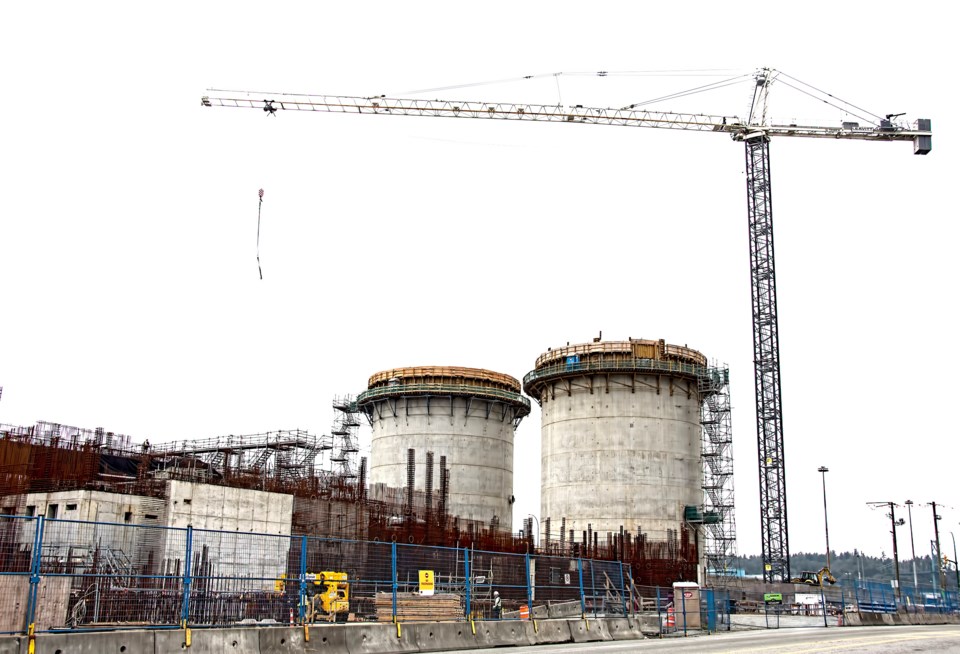Deep concerns raised by Surrey board directors about Metro Vancouver paint a troubling portrait of an organization that lacks expertise, fails to consult, and forces the region’s officials to make multibillion-dollar decisions affecting taxpayers without adequate information.
The criticism, in the form of a sharply worded letter Nov. 12 to Metro’s finance committee and obtained by Glacier Media, is the most extensive and prominent challenge yet from board directors for change at the regional federation of 21 municipalities, one electoral area and one treaty First Nation.
It calls for an overhaul of the 2025 budgeting methods, arguing that inaccurate and insufficient information has been provided to directors, including an exhaustive review of decisions on development cost charges (DCCs), and a repeal of various bylaws. More broadly it calls for changes in how the body is governed.
It identifies as specific pain points two Metro Vancouver projects, the North Shore Wastewater Treatment Plant in North Vancouver and the looming Iona Island Wastewater Treatment Plant in Richmond, and disparages how they are among the seven top projects reporting directly into Chief Administrative Officer Jerry Dobrovolny “with no independent third-party engineering and financial auditor to provide transparency, accountability and evaluate cost-benefit design-based principles/assumptions.”
The projects lack detailed and audited information on how costs are calculated, says the letter.
In the case of the North Shore plant, the budget has soared seven-fold to $3.86 billion from an original $550-million contract with little public information along the way. Meantime, the budget for the Iona plant in Richmond sits at $9.9 billion, and construction remains years away.
The letter was submitted moments before the committee’s most recent Nov. 13 meeting by Surrey Coun. Pardeep Kooner on behalf of five other Surrey directors, including Surrey Mayor Brenda Locke. Surrey’s six directors are second-most to Vancouver’s seven on the 41-director board.
The letter’s general contents were briefly discussed but the letter itself was not part of the meeting package. It wasn’t formally dealt with at the committee meeting and has been referred to Metro Vancouver staff for a response early in 2025. But its language argues nothing short of significant shifts in its operating culture and quality of competence are necessary.
“I believe there must be additional board oversight and decisions made on the costing of these Major Capital projects at a minimum,” Kooner wrote.
The letter reflects the frustration many directors have expressed of a staff-dominated operation that leaves them without the necessary decision-making information – but with the accountability as elected officials to taxpayers in their districts.
There have been calls for a third-party audit to examine what Kooner and others have complained is a chronic sprawl of budgets and a culture of indifference about them. While a performance audit will be conducted in-house on the North Shore plant costs, it hasn’t satisfied those who feel it is insufficiently independent.
The provincial government, which created Metro Vancouver as a corporate entity, has so far declined publicly to involve itself, whether to launch a fuller-fledged inquiry into costs, provide additional funds to defray significant property tax levies for the North Shore plant, or to take back the responsibilities of the operation, which at the moment is overseeing some 300 infrastructural projects.
The three-page letter goes on: “The way the current board is operating has many gaps in information, lacks sufficient details to make the decisions we need to and the full financial impacts or options are not being provided.
“For instance, the board is often asked to approve or endorse a very broad strategy that has a suite of staff-led sub-action items and staff-driven priorities. There is often little or no discussion on the broad strategy let alone no consultation is provided on the sub-action items.
“This results in a lack of crystal-clear strategies and policies which enables staff to make their own interpretations and significant decisions without Board consideration. I have found that staff has been using the strategic plan to pick and choose areas of focus with no clear direct board resolution which is affecting the information we are provided. I believe that the current governance model is not sufficient to ensure the Board is fully prepared and knowledgeable.”
The letter outlines the need to defer the 2025 budget planning to deal with six issues, including what Kooner terms “a huge concern” about DCCs, how they are apportioned to communities, and the quality of the population and dwelling forecasts. “I have been told that there are many factors that are considered; however, these other factors have not been provided.”
As it is, the budget information and methodology “is not accurate/insufficient and does not portray the true impact on the decisions that have been brought to the Board.”
Kirk LaPointe is a Glacier Media columnist with an extensive background in journalism
Editor's note (Dec. 5, 2024): Column updated to reflect that the budget of the Iona Island Wastewater Treatment Plant sits at $9.9 billion.





